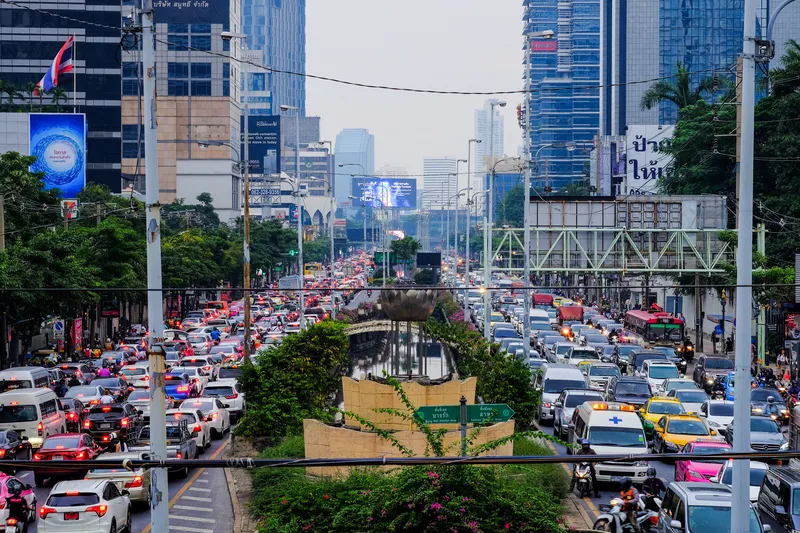A new report from Navigant Research analyses the global market for smart urban mobility infrastructure and services in smart cities, including car sharing, advanced traffic management, smart parking, and other transportation innovations, with regional forecasts for revenue, through 2024. According to the report, Urban Mobility in Smart Cities, the market for smart urban mobility infrastructure and services is expected to exceed US$25 billion in 2024.
In cities around the world, thoughts on mobility in ur
June 26, 2015
Read time: 2 mins
A new report from 7560 Navigant Research analyses the global market for smart urban mobility infrastructure and services in smart cities, including car sharing, advanced traffic management, smart parking, and other transportation innovations, with regional forecasts for revenue, through 2024. According to the report, Urban Mobility in Smart Cities, the market for smart urban mobility infrastructure and services is expected to exceed US$25 billion in 2024.
In cities around the world, thoughts on mobility in urban areas are beginning to shift in light of increasing traffic congestion and its impact on the local economy, the environment, and quality of life. As a result, cities today are moving toward a model of on-demand mobility in which citizens can take advantage of many clean transportation options that meet their immediate needs.
“In an increasingly connected environment, cities have now become the focal point for a range of new mobility tools such as car sharing, rideshare apps, and advanced traffic management, key elements of a smart city mobility strategy,” says Lisa Jerram, principal research analyst with Navigant Research. “Some cities are now going a step further by connecting different mobility modes to create on-demand, sustainable, and flexible urban transportation systems.”
Infrastructure investments like real-time traffic management, public charging networks, and smart parking systems are being complemented by new mobility services like car sharing services and rideshare apps, as well as solutions that tie these elements together to provide on-demand mobility. According to the report, these new and innovative forms of mobility are the result of both public investment and private enterprise that ultimately help cities reduce emissions and congestion.
The report examines the key smart urban mobility infrastructure and services being offered in smart cities. It analyses the market for car sharing and rideshare services; public EV charging equipment and services; smart parking systems; congestion charging schemes; and advanced intelligent transportation (ITS) and other innovations in transportation infrastructure. Global market forecasts for revenue, segmented by region, extend through 2024. The report also compares different regional approaches to smart urban mobility, looks at key city examples of each mobility segment, and profiles key players in the market.
In cities around the world, thoughts on mobility in urban areas are beginning to shift in light of increasing traffic congestion and its impact on the local economy, the environment, and quality of life. As a result, cities today are moving toward a model of on-demand mobility in which citizens can take advantage of many clean transportation options that meet their immediate needs.
“In an increasingly connected environment, cities have now become the focal point for a range of new mobility tools such as car sharing, rideshare apps, and advanced traffic management, key elements of a smart city mobility strategy,” says Lisa Jerram, principal research analyst with Navigant Research. “Some cities are now going a step further by connecting different mobility modes to create on-demand, sustainable, and flexible urban transportation systems.”
Infrastructure investments like real-time traffic management, public charging networks, and smart parking systems are being complemented by new mobility services like car sharing services and rideshare apps, as well as solutions that tie these elements together to provide on-demand mobility. According to the report, these new and innovative forms of mobility are the result of both public investment and private enterprise that ultimately help cities reduce emissions and congestion.
The report examines the key smart urban mobility infrastructure and services being offered in smart cities. It analyses the market for car sharing and rideshare services; public EV charging equipment and services; smart parking systems; congestion charging schemes; and advanced intelligent transportation (ITS) and other innovations in transportation infrastructure. Global market forecasts for revenue, segmented by region, extend through 2024. The report also compares different regional approaches to smart urban mobility, looks at key city examples of each mobility segment, and profiles key players in the market.









